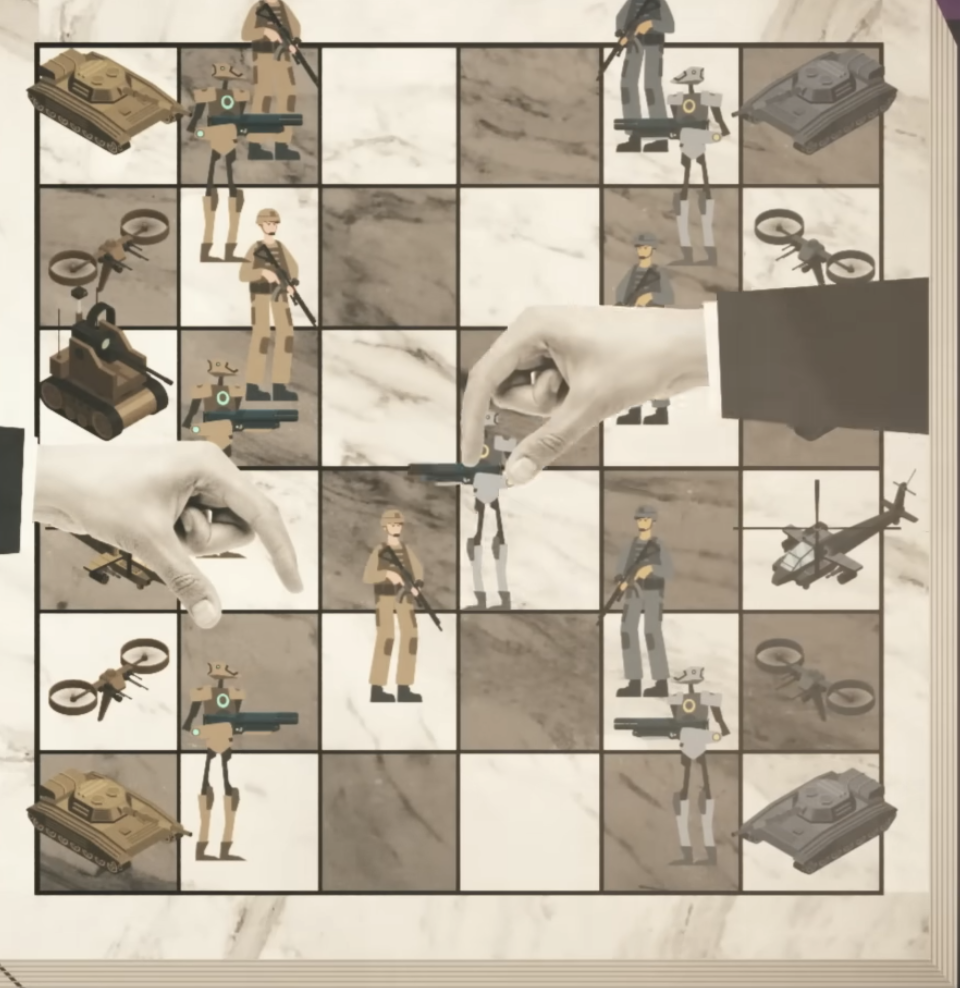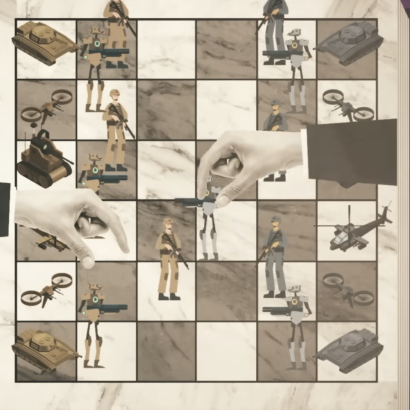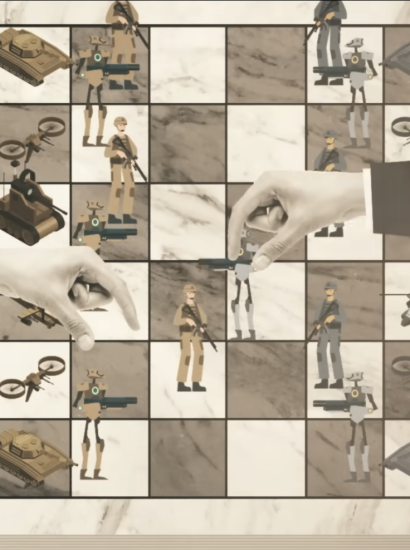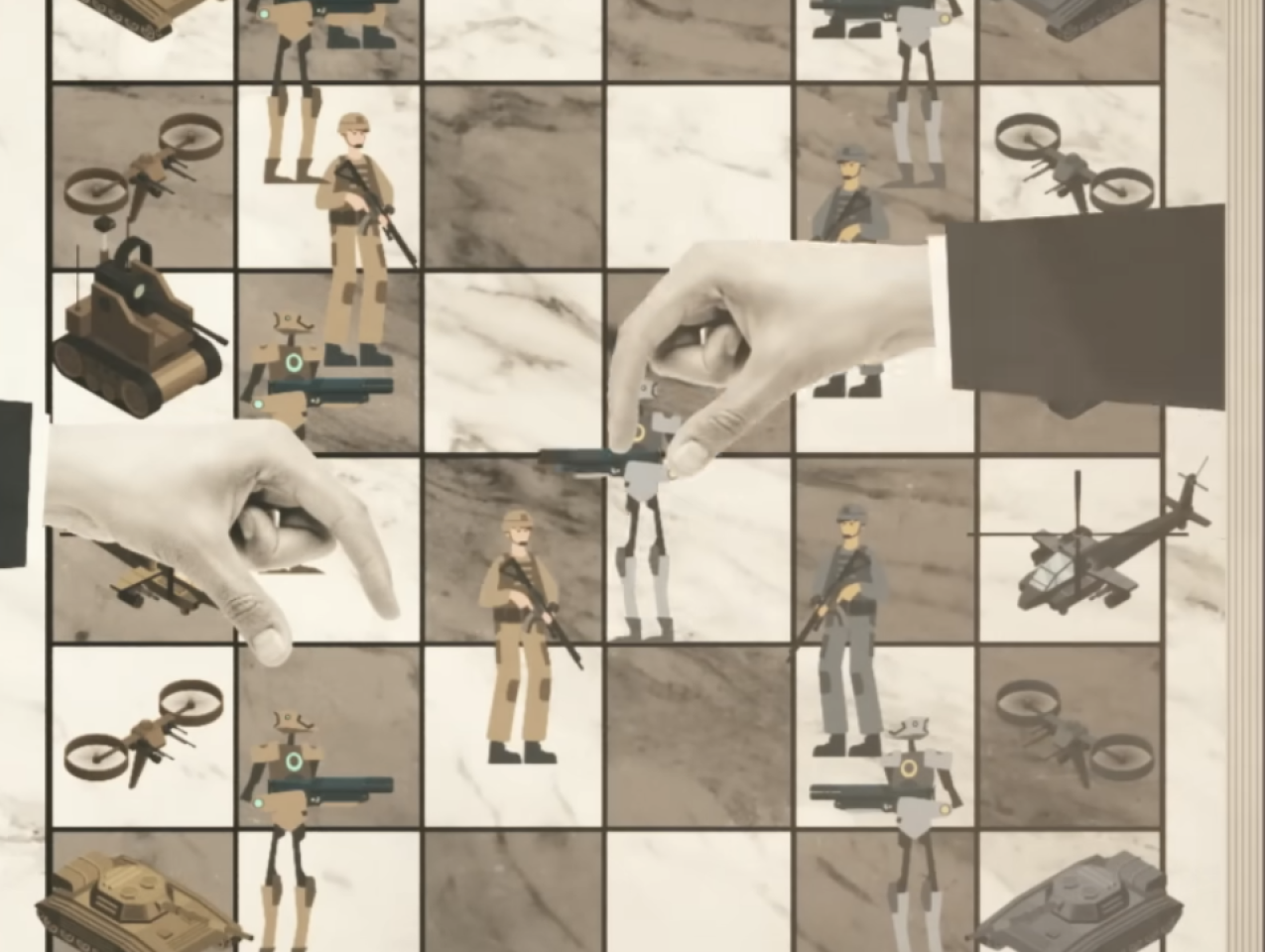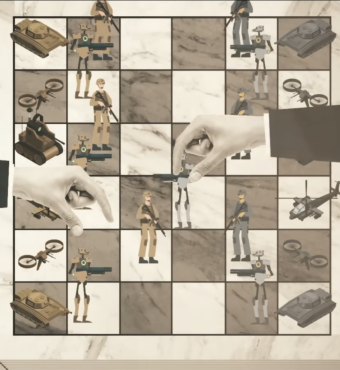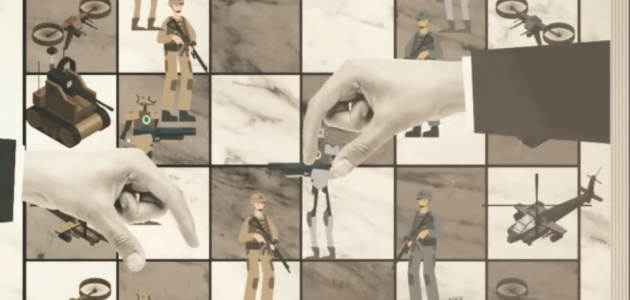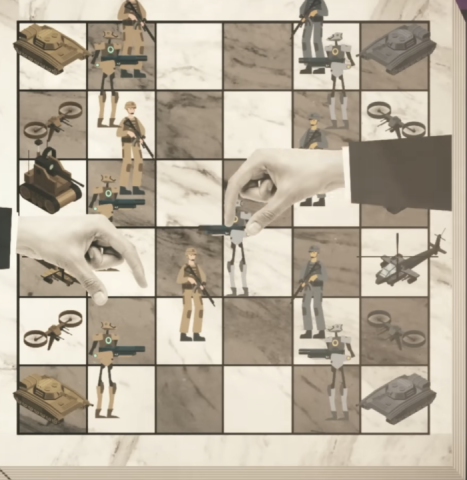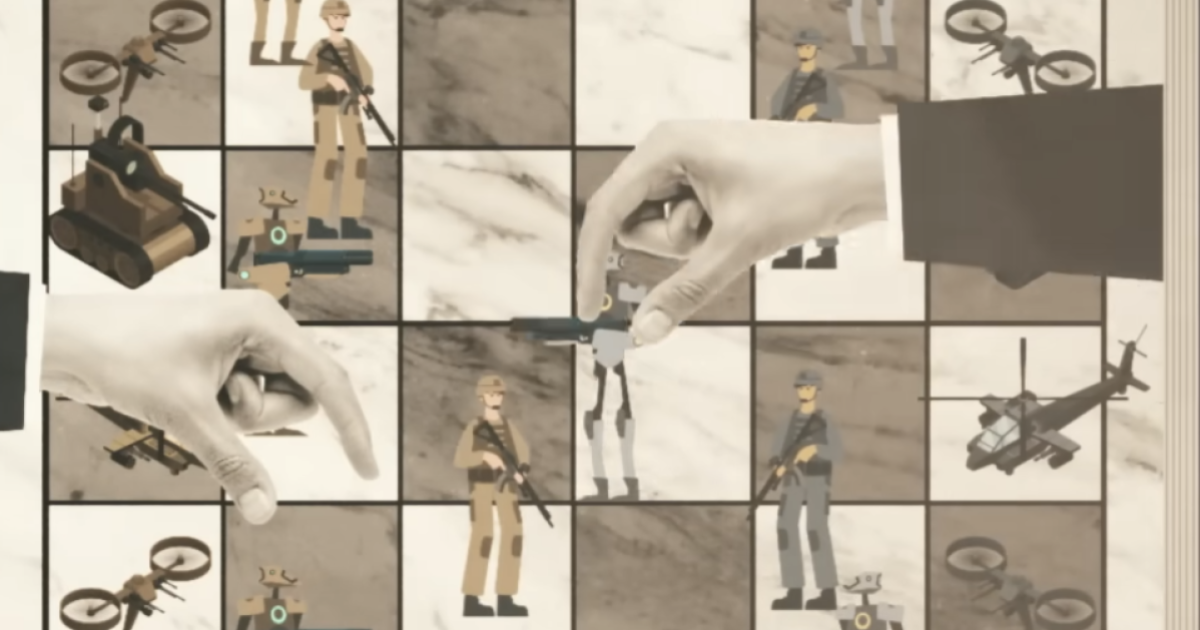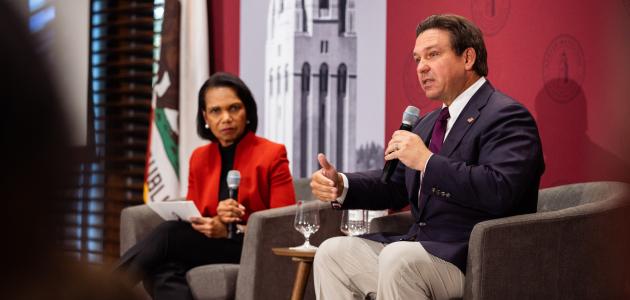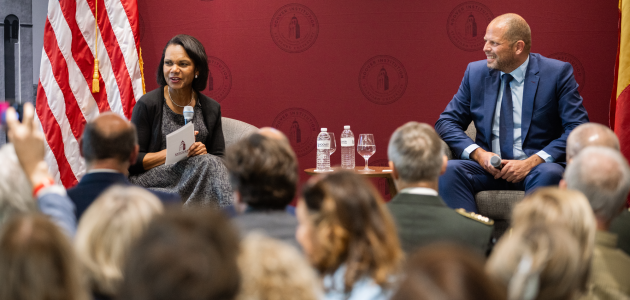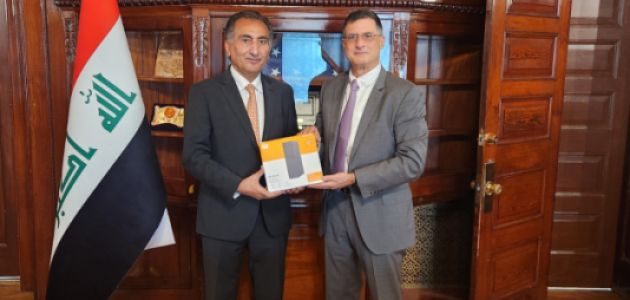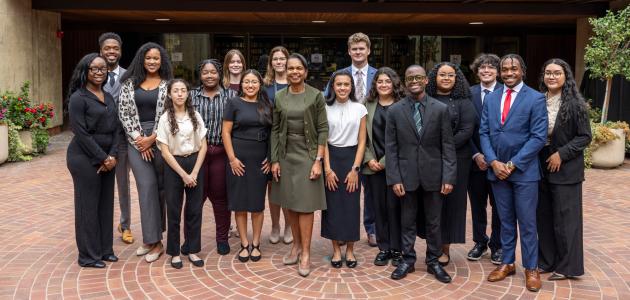In this edition of the Hoover Institution Briefing on Revitalizing History, the Strategika publication by the Military History Working Group releases its 100th issue and reflects on how it came to be and how it explores the enduring nature of warfare. Hoover’s History Lab hosts high school students eager to learn how to write research papers by interacting with primary sources. And fellows Stephen Kotkin and Dan Wang discuss the craft of history and its relevance to the present on a new podcast.
Featured Analysis
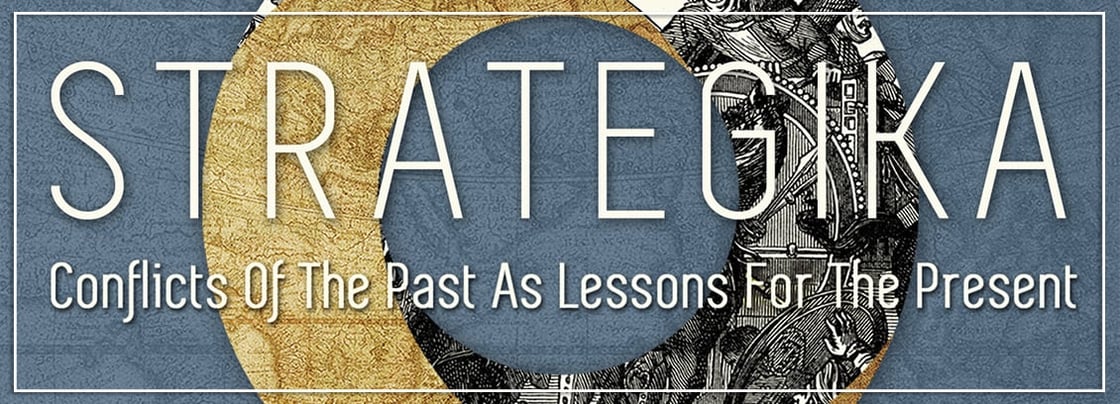
Strategika Turns 100: Why the Hoover Institution’s Military History Working Group Was Formed and Grew
In a new essay celebrating the 100th issue of Hoover’s Strategika journal of military history, Senior Fellow Victor Davis Hanson traces the origins, purpose, and development of the Military History in Contemporary Conflict Working Group, which he heads. Noting that “military history remains firmly lodged in the popular culture,” and that works of military history remain popular among book purchasers, Hanson considers why the discipline has fallen out of favor in the modern academy. He also shows how the work of Hoover’s military history research team and contributors to Strategika is part of a broader revitalization of the discipline, encouraged by multiple generations of Hoover Institution leadership. “Military history is worthy of renewed academic study,” says Hanson, “to remind an increasingly uncurious and less well-educated generation of college students about unchanging human nature, and its oldest propensity of resorting to the use of arms to settle differences, both often to prevent evil—and sometimes to perpetuate it.” You can read the 100th issue of Strategika, dedicated to “The Current Status of Military History,” here.
Hanson also spoke to Distinguished Policy Fellow Bill Whalen on the September 9th episode of Matters of Policy & Politics about the significance of the journal, and how it is uniquely positioned to illustrate the role of human conflict in history.
Read more here.
Watch or listen to the Matters of Policy & Politics episode here.
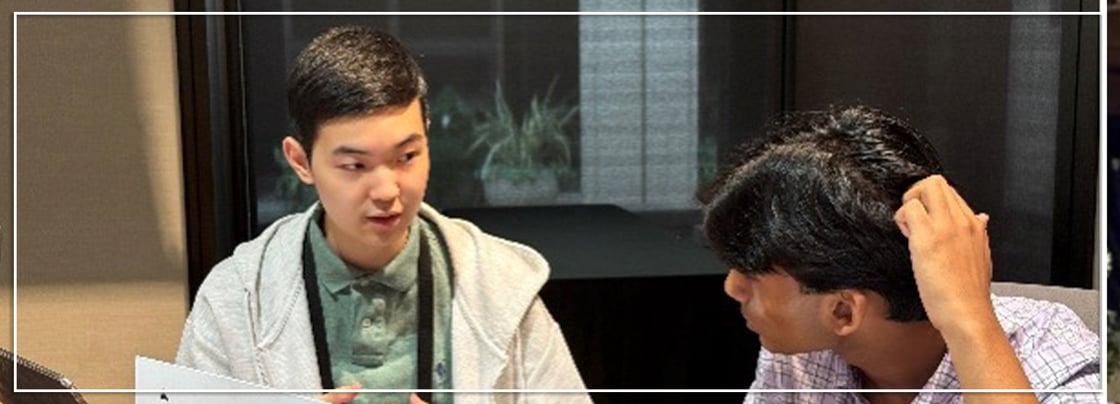
Teens Discover the Excitement and Joy of Archival Research: Hoover History Skills Academy
In late July 2025, twenty-four high school students selected by application convened at the Hoover Institution for the Hoover History Skills Academy, an accelerated summer session designed to help them learn best practices for designing, researching, and writing a substantive historical research paper. Unique to this “history camp” was the focus on leveraging the extraordinary historical materials in the renowned Hoover Library & Archives. Guest speakers during the program included the director of the Hoover History Lab, Senior Fellow Stephen Kotkin, who engaged students on the topic of what historians “do,” a conversation that the student surveys showed was memorable, down-to-earth, and fascinating. “[Professor Kotkin] seems to really care about the next generation of scholars,” commented one student, “ensuring that we are well equipped for success.” Another popular speaker was Hoover Fellow Ria Roy, who talked with students about her research experiences with North Koreans to demonstrate the value of oral history.
Read more here.
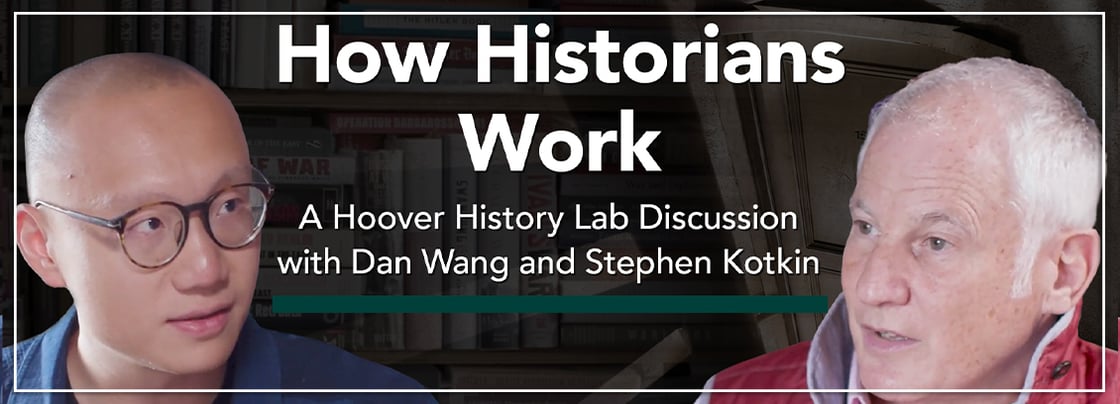
How Historians Work: A History Lab Discussion with Dan Wang and Stephen Kotkin
In this wide-ranging Hoover History Lab discussion, Senior Fellow Stephen Kotkin joined Research Fellow Dan Wang in July to explore the craft of history and its relevance to the present. From his office in Hoover Tower, Kotkin reflects on his efforts to answer the big questions of history, guided by a methodology rooted in rigorous archival research, deliberate engagement with contradictory evidence, and a strategic approach to empathy, in order to grasp the contexts and motivations that have shaped human choices at critical junctures. Wang and Kotkin talk about the enormous demand for historical understanding across society and sectors. Kotkin underscores the historian’s responsibility, in responding to that demand, to reach both scholarly and public audiences, the dangers of using “junk history” to inform policymaking, and the need for emerging scholars to engage thoughtfully with artificial intelligence. The conversation closes with considerations of what historical perspective can show us about achieving sustained global peace and prosperity.
Watch or listen here.
Highlights
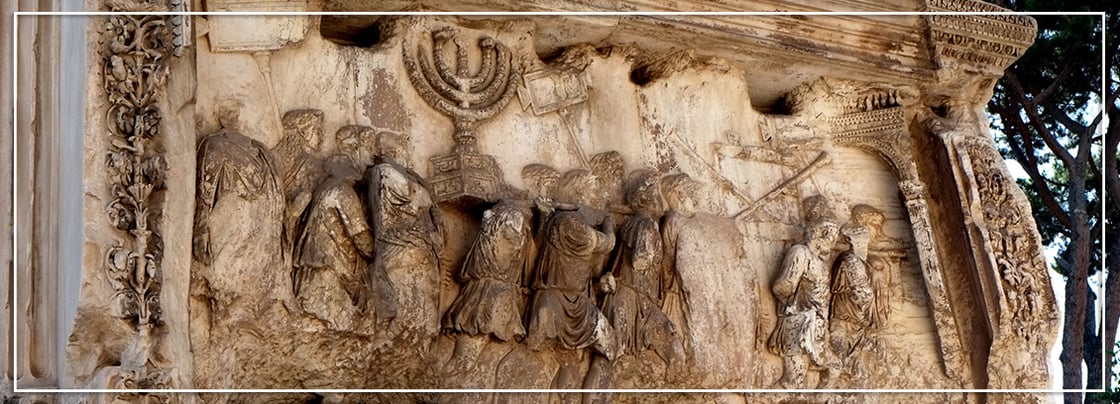
Strauss Releases New Book Chronicling History of Jewish Resistance to Roman Rule
Senior Fellow Barry Strauss released a new book in August: Jews vs. Rome: Two Centuries of Rebellion Against the World’s Mightiest Empire, which explores the history of Jewish revolts against Roman rule from 63 BCE to 136 CE. The book recounts three major uprisings during this period: the Great Revolt of 66–70 CE, which led to the destruction of Jerusalem and the Temple, culminating in the Siege of Masada, where defenders chose mass suicide over surrender; the Diaspora Revolt, ignited by heavy taxes across the Empire; and the Bar Kokhba Revolt.
Read more here.
An excerpt from Strauss’s Jews vs. Rome is available to read here at Defining Ideas.
Listen to Strauss discuss the book with Bill Whalen at Matters of Policy and Politics.

Twenty Million Left Behind: How Nigeria’s Broken Education Policies Threaten a Nation, a Continent, and the World
In a new policy brief for the Hoover History Lab, Student Fellow Gift Iyioku writes about how the inability to enroll many of Nigeria’s children in primary education is threatening the future stability of the nation, the region, and the world. Iyioku argues that Nigeria’s education system has left roughly twenty million children out of school, imperiling national development, regional stability, and global security. Tracing historical policy missteps and uneven implementation since early universal primary education efforts, the essay links chronic underperformance to governance failures and rigid, one-size-fits-all blueprints. Iyioku calls for pragmatic, flexible reform that starts small, tests and scales what works, and exploits Nigeria’s federal diversity. Recommended paths include piloting public-private collaborations, integrating and regulating faith-based schools, and targeted voucher schemes, all within a national framework that safeguards equity and quality. The piece emphasizes improving accountability and learning outcomes over mere enrollment, aligning incentives for states and nonstate providers, and building feedback loops to adapt based on results.
Read more here.
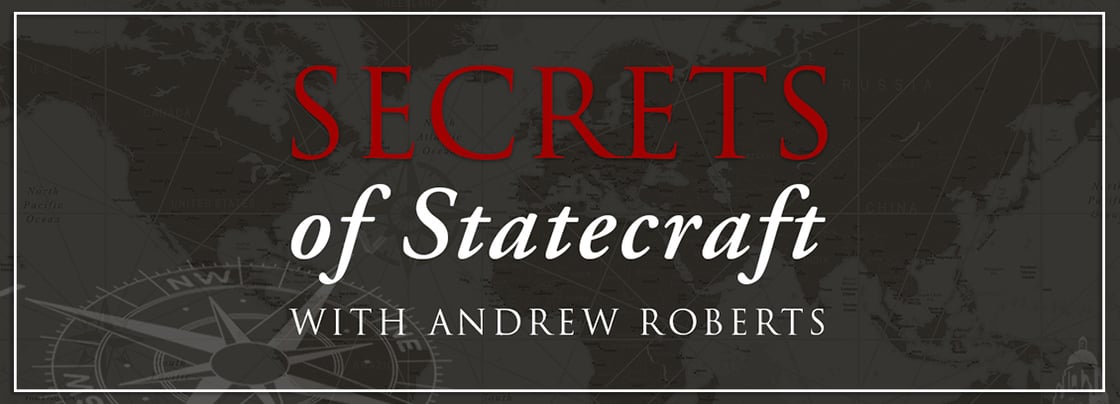
Secrets of Statecraft Episodes Feature Condoleezza Rice, Niall Ferguson
Over at the Secrets of Statecraft podcast, Distinguished Visiting Fellow Andrew Roberts interviewed Hoover Institution Director Condoleezza Rice and Senior Fellow Sir Niall Ferguson over the summer months. In Rice’s episode, they discuss today’s international hotspots—including Russia’s invasion of Ukraine, rising tensions with China over Taiwan, and the complex relationships between Russia, China, Iran, and North Korea. Their discussion also covers how leaders draw lessons from history, what might tip the world into a new Cold War, and how nations might address these evolving challenges to security and prosperity.
In the discussion between Roberts and Ferguson, they entertain the worth of applied history and analyze the value of considering counterfactuals involving significant turning points in history—something Ferguson says all good history undergraduates of his generation were told they were not ever supposed to do. They also unpack the nature of the study of history, remembering that events are not predetermined, outcomes of various events are numerous and wide-ranging, and one shouldn’t think the course of history is predictable and steady like the plot of a well-organized novel. “You’ll actually learn more about history from watching football than going and reading fiction,” Ferguson says.
Listen to both episodes here.

Our Very Own Gilded Age
Writing in The Free Press, Niall Ferguson compares today to the “Gilded Age” of the late 19th century. Like today, there are rising tariffs, concerns about immigration and vast income inequality. A president sought to annex territory in the Caribbean and Pacific. He sees other parallels in the recent behavior of today’s elites and the conduct of politics during both periods. But unlike the late 1800s, the size of the US federal government is vast, China is a superpower, not an opium-addled backwater, and there is a redistributive taxation system propping up the working poor in America. “So yes, ours is in some respects a gilded age,” Ferguson writes. “A period of remarkable economic dynamism, the late 19th century in the United States was characterized by great inequality, mass mobility, unprecedented investment and innovation, crooked politics, ideological polarization, and imperial aspiration. We see similar trends today. Yet the United States today is an aging empire, not a rising power. Its social fabric is torn. Its faiths are weak. Urban, elderly, distracted by a febrile “news” cycle, and addicted to a vile diet of processed foods and pharmaceuticals.”
Read more here. (subscription required)
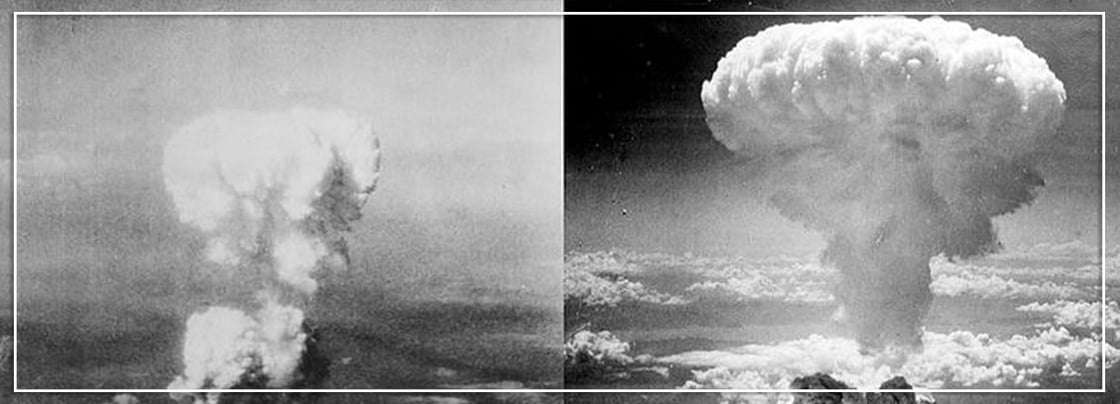
Disinformation and the Dropping of Atomic Bombs
Writing about President Truman’s decision to drop nuclear weapons on Hiroshima and Nagasaki eighty years ago, Victor Davis Hanson takes on five common questions asked today about that enormously consequential and deadly decision. He breaks down why the Allies considered but ultimately passed on dropping one of the atomic bombs over Tokyo Bay, with its blast serving as a demonstration. He also answers why nuclear weapons were not used against Germany (they weren’t ready in time for the Nazi surrender). He also explores the challenges involved in getting the bombs to the middle of the Pacific, dropping them, and then successfully detonating them, something modern audiences assume was easy. In fact, the cruiser Indianapolis was torpedoed and sunk by the Japanese just two days after it successfully delivered components for the bomb Little Boy to Tinian.
Read more here.
Hoover’s Library & Archives announced last month that it has preserved and digitized rare, high-quality footage of the bombings of Hiroshima and Nagasaki.
Read more here.
Featured from the Hoover Library & Archives

Eastern Europe and Beyond: Photographic Albums Revealed
On display in the Lou Henry Gallery in Hoover Tower until February 2026 are a collection of photo albums from Eastern Europe that capture the histories, landscapes, peoples and cultures from 1899 to the mid 20th century. Highlights include the imperial, revolutionary, and Soviet eras in Russia; the experiences of Russian émigrés abroad; tumultuous events in the Caucasus and Ukraine during the early 20th century; the Balkan conflicts; the Romanian interwar monarchy; the First Czechoslovak Republic between the world wars; US humanitarian efforts in Poland; and the evolution of the independent Baltic republics and their diasporas.
Read more here.
Fellow Spotlight

Dan Wang
Dan Wang is a research fellow at the Hoover Institution, Stanford University, in its Hoover History Lab and is one of the most-cited experts on China’s technological capabilities. He is the author of Breakneck: China’s Quest to Engineer the Future (W. W. Norton & Company [US] and Penguin Books Ltd. [UK]).
Wang was previously a fellow at the Yale Law School’s Paul Tsai China Center and a lecturer at Yale University’s MacMillan Center for International and Area Studies. From 2017 to 2023, he worked in China as the technology analyst at Gavekal Dragonomics, based in Hong Kong, Beijing, and then Shanghai.
While based in China, Wang covered the web of US tech restrictions; their impact on leading companies; and the country’s growing capabilities in semiconductors, clean technology, and advanced manufacturing.
For more insight on important issues visit www.hoover.org/focus-areas/revitalizing-history







